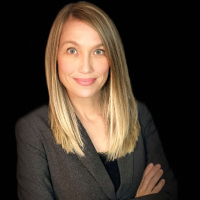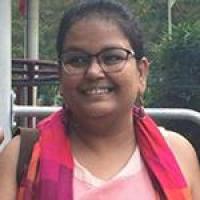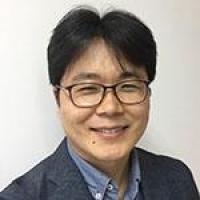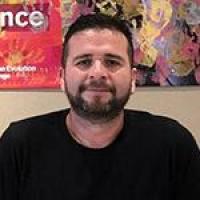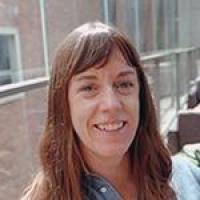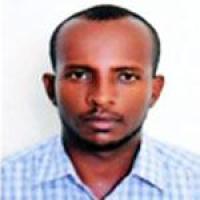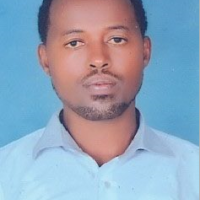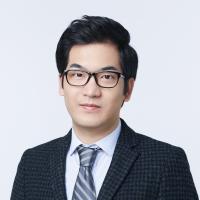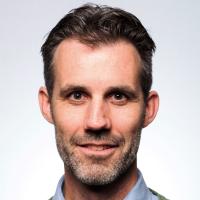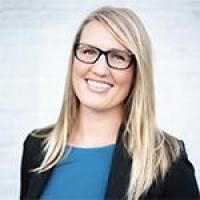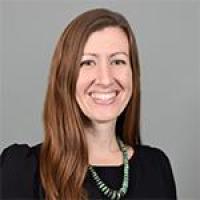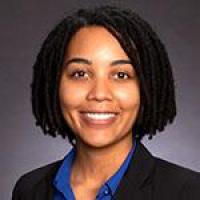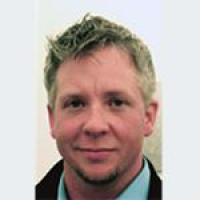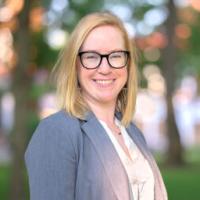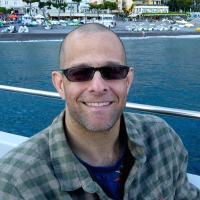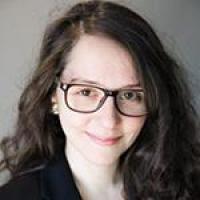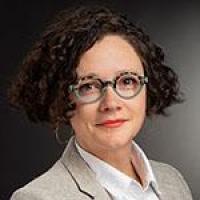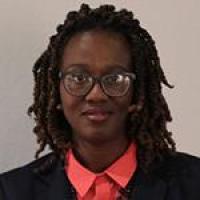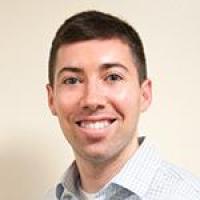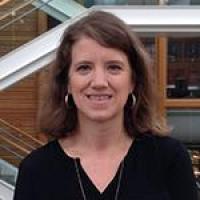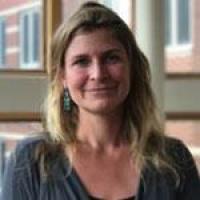
Center for Global Health
Leadership Team
Alexandra Brewis
Founding Director, Regents and President's Professor
Alex is trained in anthropology, demography and human biology, and has three-plus decades of experience leading large mixed-method social science collaborative projects across the globe, including in the island Pacific, Americas, Africa, and the Caribbean. Her research focuses on how social vulnerabilities shape health and well-being. Best known for her innovative research on stigma and weight, Alex has authored eight books and over 200 journal articles. An accomplished administrator and research strategist, she works with public, private, and community partners to translate social science research into usable knowledge. Alex led the development of the nation’s first degree in global health and is known for her innovation in experiential undergraduate education.
Amber Wutich
Director, Regents and President's Professor
Amber is trained in anthropology and development, and has two decades of community-based research in Latin America (Bolivia, Paraguay, Mexico) and China on how people are affected by and cope with inequitable institutions. She is best known for her research on water insecurity, and in 2023 was named a McArthur Fellow for her innovation and leadership on understanding its social causes, consequences and design of innovative solutions. Also recognized as a nationally leading social science methodologist, Amber has more than 200 published journal articles and teaches ethnographic field methods and text analysis in international programs. Her teaching and mentoring is recognized with multiple awards including Carnegie CASE Arizona Professor of the Year.
CGH Faculty
CGH Affiliated Faculty
International
Neetu Choudhary – Adjunct Faculty, Arizona State University
Dr. Choudhary was an Indian Fulbright Scholar, 2018-19 at the Center for Global Health, ASU. Currently, she has been appointed as Adjunct Faculty at SHESC. Neetu is also working as an independent consultant, based in Patna, a city in Eastern India. After earning her doctorate in Economics from the Indian Institute of Technology Bombay, Neetu has been engaged in research and post-graduate teaching. Her research interests include hunger, child malnutrition, gender, water and health and informal workers. Dr. Choudhary has been recipient of several international awards and sponsorships including the Italian Government fellowship for research at University of Siena. In 2014, her research on malnutrition in India and Sub-Saharan Africa, was awarded by the Global Development Network. She has also been associated with International Training Center, of the ILO on the agenda of Social and Solidarity Economy. Her recent book, published by Palgrave Macmillan, focuses on informal workers and organized action across countries in the global South.
Dong-Sik Kim – Korean Women's Development Institute, South Korea
Dr. Kim is a research fellow at the Korean Women’s Development Institute which is a government research think-tank under the Prime Minister’s Office of South Korea. He is a member of various gender equality and health committees of the central and local governments in South Korea. His research interests include gender and health inequalities, and in recent years he has conducted several researches on gender-based violence, sexual and reproductive health, and gendered body and its impact on psychological wellbeing through national surveys. In relation to the latter, Korea regards women's body as an important capital for social success, so that Korean women are strongly under pressure for their body management throughout their lives. In the process, most of Korean women are exposed to plastic surgery. Early and repeated plastic surgery threatens women’s physical and mental health. Dr. Kim found these results through a national survey last year and now studies how gendered and stratified women’s body are linked to discrimination, stigma and health against women.
Alexandra Brandt Ryborg Jønsson – Roskilde University, Denmark & The Arctic University, Norway.
Dr. Jønsson is a social anthropologist working within the field of health inequities with a particular focus on overdiagnosis, medicalization and marginalized populations. She is a tenured Associate Professor of Health and Society at the Department of People and Technology, Roskilde University. She works ethnographically, drawing on STS-methodologies and epidemiology. Her research has appeared in journals such as Medical Anthropology, Ethos, Health, Medial Anthropological Theory, Social Science and Medicine, and her research also informs policies on health services. Dr. Jønsson is a frequent keynote speaker and currently serves as Vice President of The Danish Young Academy under the Royal Danish Academy of Sciences and Letters.
Ernesto Lopez – Universidad Católica, Paraguay
Professor Ernesto Lopez is the director of the Research Department at the Catholic University in Encarnacion, Paraguay. He is also a professor and researcher at the National University of Itapúa where he specializes in Guarani and Spanish Bilingualism, as well as in the English language. In 2018 he was appointed as Research Candidate for the National Incentive Program for Researchers (PRONII), an annual grant for professional researchers from different fields funded by National Science and Technology Council Paraguay (CONACYT). In addition to these titles, he is currently working on a research project called, “Multilingualism in Itapúa: Official, Indigenous and Foreign Languages in Contact” granted by CONACYT.
Katie Meehan – King's College London, United Kingdom
Dr. Meehan is a human geographer and water policy specialist by training. Dr. Meehan is senior lecturer in human geography at King's College London and the lead principal investigator of the Plumbing Poverty project. Her expertise includes urban political ecology, infrastructure and social inequality, household water insecurity, urban geography, and the politics of environmental knowledge at the science-policy interface. She is a mixed methodologist, combining data from diverse sources such as ethnography, household surveys, Q method, and census data. Her research has appeared in journals such as Science, Geoforum, Environment and Planning D, Water International, and WIREs Climate Change. Meehan is on the leadership team of the NSF-sponsored research project on Knowledge Integration that explores how experts integrate knowledge "from microbes to landscapes" and across disciplinary cultures in the Brazilian Amazon, a place of intense scientific collaboration and long standing geopolitical unease regarding issues of knowledge production and resource extraction.
Vincent Nyirenda – Copperbelt University
Dr. Nyirenda is a Senior Lecturer at The Copperbelt University, Zambia. His research interests include human- wildlife interactions, wildlife ecology, social-ecological sustainability, community-based conservation, and wildlife management.
Kedir Teji Roba – Haramaya Univesity, Ethiopia
Dr. Kedir Teji Roba is an assistant professor in the College of Health and Medical Sciences at Haramaya University. Dr. Kedir studies the relationship between of exposure to infectious diseases and epidemiology of under-nutrition/food insecurity in the region around Haramaya. He is also site coordinator for Demographic and Health Surveys efforts, leading a large team and data collection and management for over 50,000 households and 300,000 people.
Adane Ermias Mangasha- Hawassa University
Professor Mangasha is a PhD student in Water and Public Health specialty in Addis Ababa University, Ethiopian Institute of Water Resources, Ethiopia. Prof. Mangasha studies a coexistence and interrelationship between women`s musculoskeletal disorders, household water insecurity and childhood diarrhea among rural residents accessed to off-plot drinking water services in sidama region, southern Ethiopia. He has been researching in Sidama region, southern Ethiopia, since 2014. He has been leading a thematic research program and administering the fund, which comprises about 881 household located under 3 districts of Sidama region. The research project is concerned with water supply, sanitation and hygiene (WASH) contribution to childhood undernutrition. He is interested and experienced on areas WASH, musculoskeletal disorders, household water insecurity, childhood undernutrition, contribution of professional integration and collaboration to behavioral change.
Fernanda Scagliusi – University of Sao Paulo, Brazil
Dr. Scagliusi is a professor at the School of Public Health of the University of São Paulo, Department of Nutrition. She has experience in nutrition, with emphasis on nutrition analysis of population, socioanthropology of food and clinical nutrition, working mainly on the following topics: socio-cultural aspects of food and eating, obesity and dietary intake assessment. She is a member of the Human and Social Sciences Commission of the Brazilian Association of Public Health (ABRASCO). She has been, since 2017, coordinator of the Coordinating Committee of the Nutrition Course of the School of Public Health of USP. She is a member of the Center for Epidemiological Research in Nutrition and Health (NUPENS).
Tianlong You - Yunnan University
Dr. You, a sociologist specializing in international migration and development, completed his doctoral studies in the Justice Studies program at Arizona State University. His extensive field research spans critical regions, including the U.S.-Mexico and China-Myanmar borders, alongside major global economic centers such as New York City and Yiwu City. Presently, Dr. You's research explores the nuanced dynamics of asymmetrical cross-border governance, particularly concerning the transmission of HIV and other epidemic diseases along the China-Myanmar border. He investigates the intricate socioeconomic and politico-institutional repercussions stemming from the disparate development in epidemic governance, impacting both nations profoundly. Dr. You currently holds the position of Chair of the Department of Sociology at Yunnan University, where he continues to contribute significantly to the field.
Patrick Thomson - University of Oxford
Dr. Thomson is a Senior Research Associate at the University of Oxford. His research combines social science, natural science, and engineering, with three interlinked strands: how poor water supplies affect the physical and mental health of water users; whether better information can enable professional maintenance of rural waters systems; and how we should rethink water infrastructure for the 21st Century. His research to-date has primarily been undertaken in Kenya, where he is a trustee of FundiFix Water Services Trust, a social enterprise managing water systems serving 70,000 people
U.S.-based
Melissa Beresford – San Jose State University
Dr. Beresford is an assistant professor of anthropology at San José State University. Her research focuses on the intersection of the economy and the environment, largely aimed at understanding how humans respond to economic inequality and water insecurity. To date, her work has examined (1) community-based economies, (2) efforts to create alternative (hybrid/non-market) economies, and (3) how such economies can be used (or not) to address water and other resource insecurities. Dr. Beresford is also an anthropological methodologist, focused on researching and innovating methods for ethnographic research and qualitative data analysis. Her fieldwork is primarily based in Cape Town, South Africa, however she has collaborated on research in Latin America, the United States, and in cross-cultural context.
Meg Bruening – Department of Nutrition, Penn State University.
Dr. Bruening’s research interests include public health nutrition promotion and obesity prevention targeted to underserved, vulnerable youth and families. Major topics in these areas include food insecurity risk and resiliency factors, developing and evaluating public health nutrition interventions, including school- and community-based programs, and social epidemiology/socio-environmental influences of eating behaviors including the role of friendship networks/social support for healthy eating.
Christine DeMyers – The Water Institute of the Gulf
Dr. DeMyers is an anthropologist who works with a range of community leaders and stakeholders to who are preparing for or responding to water management challenges in southern Louisiana. Dr. DeMyers collects and analyzes primary data (audio, video, field notes, workshops and focus groups; structured, unstructured, or semi-structured interviews; and surveys) to understand and aggregate experiences with—and solutions to—environmental risks. She applies systematic summaries of relevant community and stakeholder perspectives to sustainable water management and climate change adaptation plans. Prior to joining the Institute, Dr. DeMyers led independent research on stakeholder roles in developing sustainable cities and grassroots solutions to social and environmental inequalities in Phoenix, Arizona, and the Colorado River Basin.
L. Zachary DuBois – University of Oregon
Dr. DuBois is an assistant professor of biocultural anthropology at University of Oregon with expertise in transgender health and well-being. He directs the Stress, Adaptation, and Resilience (STAR) Lab, which focuses on understanding embodied stigma and resilience among those most susceptible to stress-induced disparities in health. His work primarily examines stigma and social determinants of health among sexual minority and transgender and gender diverse people in the U.S. To do this, he conducts community-based mixed-methods research, integrating in-depth interviews with biological measures to uncover psychobiological pathways of stress and resilience toward the reduction of health disparities.
Margaret du Bray – Hollins University
Dr. du Bray teaches in the Environmental Studies program at Hollins University, where she teaches students the fundamentals of environmental studies. After completing her PhD, she worked as a post-doctoral researcher at Idaho State University as part of the EPSCoR MILES project examining fairness in groundwater governance. She has a PhD in sociocultural anthropology from Arizona State University. In addition to ongoing collaborations with ISU, she continues to work with the Center for Global Health and the Culture, Health, and Environment Lab at Arizona State University's School of Human Evolution and Social Change. This research explores local understandings of climate change, and the neoliberal approaches to governing resources, particularly in the form of ecosystem services. Dr. du Bray is also a member of the HWISE network.
Carlos Garcia-Quijano – University of Rhode Island
Dr. Garcia-Quijano is an associate professor at the University of Rhode Island. His principal line of research has focused on understanding the relationship between local/traditional ecological knowledge (LEK/TEK), coastal resource use and human well-being in the Caribbean, especially Puerto Rico. He has investigated how small-scale coastal resource users, such as fishers and land crab hunters, use their knowledge of social-ecological systems to succeed in their enterprises. Specifically, what constitutes success for Puerto Rican small-scale fishers and the relationship between their knowledge of local ecosystems and their success in fishing. Dr. Garcia-Quijano’s work on this topic was recognized with the American Anthropological Association’s Anthropology and Environment Junior Scholar Award in 2009.
Analía Gomez Vidal – Inter-American Development Bank
Dr. Gomez Vidal is a research consultant in water and sanitation at the Inter-American Development Bank. Her research focuses on the intersection of political economy and gender in Latin America. She combines multiple methodologies (including computational social science, survey design and semi-structure interviews) to explore how people think about, and are affected by, gender inequality at different levels. Her work includes exploring and measuring Sustainable Development Goals, identifying gendered patterns of behavior and decision-making, studying the experiences of women in politics, and understanding public opinion towards gender- and race-equality in Latin American countries.
Jessica Hardin – Rochester Institute of Technology
Dr. Hardin is an assistant professor at the Department of Sociology and Anthropology, Rochester Institute of Technology. She was previously appointed as an assistant professor at Pacific University. She received her PhD in Anthropology from Brandeis University with an MA in Women’s and Gender Studies. Her current research focuses on how cultural notions of temporality shape medical decision making processes among people living with advanced diabetes in Samoa. This research focuses specially on family decision making around diabetes related skin conditions and amputations. Her previous research has focused on embodiment, health inequities, fatness and food studies. Her first book (Rutgers University Press, 2019)—based on fieldwork funded by the Wenner Gren Foundation and Fulbright—focused on the religious management of cardiometabolic disorders. She has published articles in American Ethnologist, Social Science & Medicine, and Medical Anthropology Quarterly, among others.
Wendy Jepson – Texas A&M University
Dr. Jepson is a professor of geography at Texas A&M University. Her current theoretical interests address political ecology and environmental governance with particular focus on environmental justice and water resources in the United States and Latin America. Dr. Jepson’s current research project addresses urban water provision and household water security, with particular interest in political, economic and social production of environmental inequities in marginalized neighborhoods in the U.S. (Texas) and Brazil (Ceará).
Chinedum Ojinnaka – College of Health Solutions, Arizona State University
Dr. Ojinnaka is an assistant professor of biomedical informatics in the College of Health Solutions. She trained and practiced as a physician in her home country of Nigeria prior to moving to the U.S. She is a health services/population health researcher with a focus on health on health disparities. Her research leverages databases such as population-based surveys, cancer registries and administrative claims data to explore individual and population-level determinants of healthcare utilization and health outcomes. Her research also involves implementing and evaluating interventions aimed at optimizing healthcare access and utilization among underserved populations.
Anaís Roque – The Ohio State University
Dr. Roque is an environmental social scientist and anthropologist who studies resource insecurity and health, such as how communities experience, prepare for and respond to food, energy, and water insecurity in the wake of disasters. She conducts research in Puerto Rico and the U.S. Mexico Borderlands.
Jacelyn Rice-Boayue – University of North Carolina at Charlotte
Dr. Rice-Boayue is an assistant professor at the Department of Engineering Technology and Construction Management in the College of Engineering, University of North Carolina at Charlotte. She previously completed postdoctoral training at Duke University within the Center for the Environmental Implications of Nanotechnology. During that time, she also served as a Fulbright Scholar at the International Institute of Water and Environmental Engineering in Burkina Faso. She received her Ph.D. in Environmental Engineering from Arizona State University. Her research is primarily focused on developing integrated models for water quality assessment towards public and ecosystem health. Rice-Boayue’s most recent work focusing on potential ecological impacts from treated wastewater discharges, is published in Nature Geoscience and featured online in The Scientist and Inside Science.
Asher Rosinger – Penn State University
Dr. Rosinger is an Ann Atherton Hertzler Early Career Professor in global health at Penn State. He directs the Water, Health, and Nutrition Lab, which examines how humans respond to changing nutritional and economic environments through water and dietary intake and the significance of mismatches in these relationships for short- and long-term health, nutrition, and disease. His overall research program is designed to understand the range of human variation in water intake and how this relates to perception, environmental resources, water insecurity, and health, hydration, and disease risk.
Amanda Thompson – University of North Carolina
Dr. Thompson is an associate professor of nutrition and anthropology at the University of North Carolina, specializing in human growth and nutrition. She focuses on the biological pathways linking early life social, behavioral and physical environments to the development of obesity and chronic disease across a range of national and international settings, including North Carolina, China, and Ecuador. She is particularly interested in how early life nutrition and environmental exposures shape long-term health and obesity risk. Her research combines laboratory, anthropological and epidemiological approaches to examine the effects of local environments in shaping human growth and development early in life and their lasting impacts on health and well-being throughout the lifespan.
Sarah Trainer – Seattle University
Dr. Trainer is trained as a medical anthropologist. Her previous work has included ethnographic research in the UAE, the American Southwest, and the American Southeast, exploring intersections between identity and body work within institutional settings. Her 2020 book on “Extreme Weight Loss” delves into CGH-Mayo Clinic collaborative project focused on the experiences of bariatric patients before and after surgery.
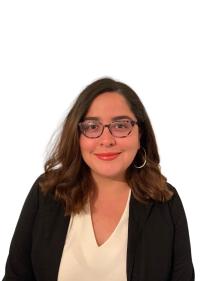
Mirtha Garcia - Mirtha Garcia is a 2024 American Council of Learned Societies (ACLS) Leading Edge Fellow. She will work with GLMA: Health Professionals Advancing LGBTQ Equality as an LGBTQ+ Health Equity Research Specialist. In this role, she will combine quantitative and qualitative research methods to steward GLMA’s research priorities to advance LGBTQ+ health equity. She holds a Ph.D. in Sociocultural Anthropology from Arizona State University. She has researched the experiences, identities, and quality of life of migrant and non-migrant trans individuals and how they navigate both the public sector and their private lives. With her research, she hopes to assist with creating policies and academic work that can help trans communities globally. She has an M.A. in Visual Anthropology from the University of Southern California, where she completed a 30-minute ethnographic film on trans Latina immigrant women’s identity transnationally. She aims to conduct research that employs semi-structured interviews, photovoice, participant observation, and archival work.
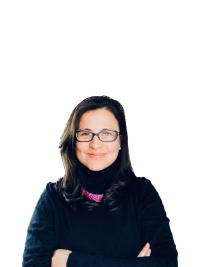
Laura Castro Diaz - Laura is a sustainability scholar who works with transdisciplinary and convergence teams that advance environmental justice and tackle sustainability challenges. She employs diverse collaborative and community-based frameworks and mixed-methods to examine the implications and responses to environmental injustices at different scales, from the individual to the global scale.
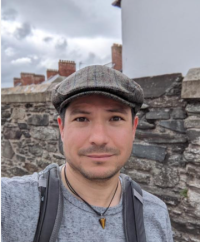
Francois Dengah - Dr. François Dengah is a biocultural medical anthropologist, specializing in cognitive theory and methods. He earned his PhD in anthropology at The University of Alabama (2013), and his MA (2008) and BA (2004) at Colorado State University. His research focuses on how cultural conformity (also known as cultural consonance) impacts the psychological and physiological well-being of individuals. His work examines the intersection of culture and stress among various communities, including Brazilians, video gamers, and religious groups.

